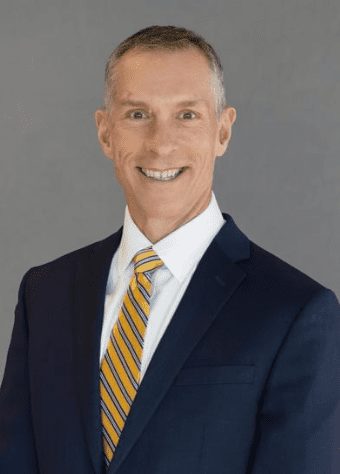
The finalists for WashingtonExec’s Chief Officer Awards were announced March 17, and we’ll be highlighting some of them until the event takes place live, in-person May 10.
Next is Chief Legal Officer finalist in the Private Company category Bruce Almquist, senior vice president & general counsel for CAES. Here, he talks about career turning points, success in his current role, career advice and more.
What has made you successful in your current role?
The secrets to my success are many, starting with being a good listener and understanding my company’s business. As General Counsel, I need to not only understand my company’s business objectives or goals in a negotiation or transaction, but also the other side’s objectives (or objections). This enables me to achieve win-win results. Surrounding myself with skilled people is another reason for my success, as I’ve been very fortunate to have recruited and retained very talented people. Some team members have more expertise than I in certain areas, which is a win for me as their leader and the company.
Lastly, being dedicated and having a good work ethic has also helped get me where I am today. My leadership knows they can reach me anytime and that I meet my commitments. All of this experience has made me a well-rounded lawyer.
What was a turning point or inflection point in your career?
Looking back, I had two pivotal turning points in my career. First, I left a Dallas law firm to work in-house for a global IT company. What a transition that was, going from a law firm with multiple clients to one client and which required providing guidance vs options. If a law firm attorney provides bad advice, the client will go elsewhere, but when an in-house lawyer makes a bad recommendation or decision, it can stay with you for a long time at that company. This was quite a shift in thinking for my legal career.
The second turning point came while at the IT company and was offered an opportunity to lead the company’s European legal team. What an incredible experience to live in the U.K. for a couple of years and to learn the various cultural and jurisdictional differences! At the end of that stint, I had a choice of returning to Dallas to be an IT transactional lawyer or moving to Virginia to become a government contracts lawyer. I chose the latter, taking on a different role and learning about government contracting. If I had never taken on the U.K.-based role, I would not be as well rounded as I am today.
Looking back at your career, what are you most proud of?
While at the IT company, I led the legal team (comprised of internal lawyers and two external law firms) to restructure a major U.S. government contract (BGA) awarded to the company. The contract was a huge financial burden on the company and an integrated team of lawyers, operations, sales, etc. worked on operational and contractual issues (BGA) for almost three years. The company filed a multi-billion dollar claim against the Government and our team was able to renegotiate and extend the contract, which became a profitable contract for the company. As a result of the negotiations, the Government subsequently extended the contract multiple times and the company continued to benefit from the restructured contract for years to come.
What’s your best career advice for those who want to follow in your footsteps?
Do not be afraid to step outside of your comfort zone. Be willing to take a risk with your professional career. Surround yourself with talented people, stay connected with former colleagues and network with new colleagues.

